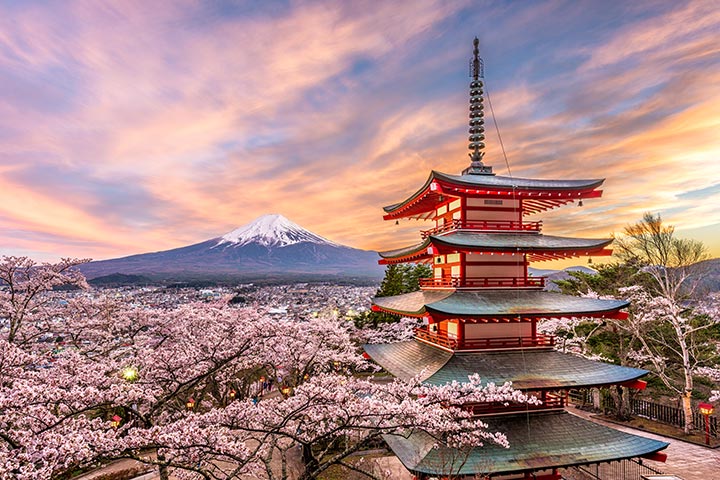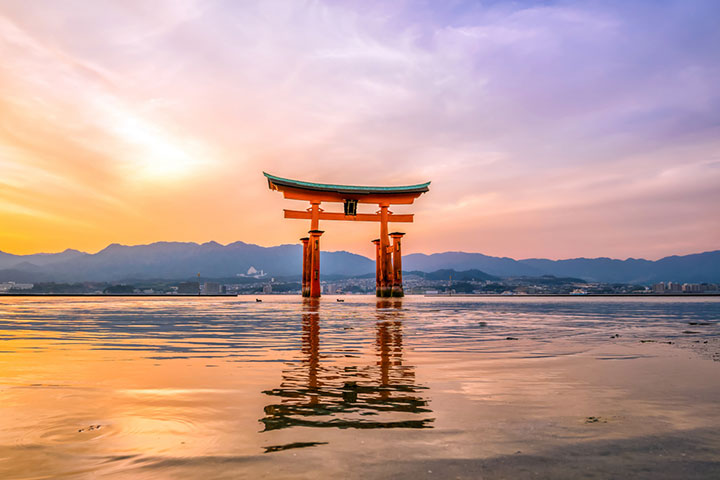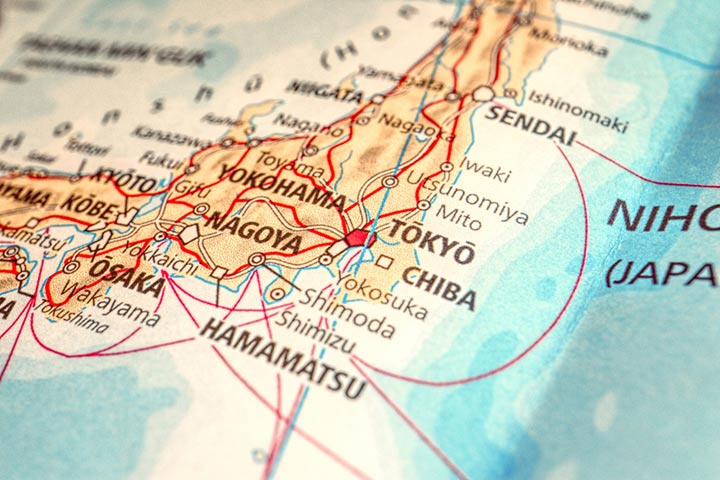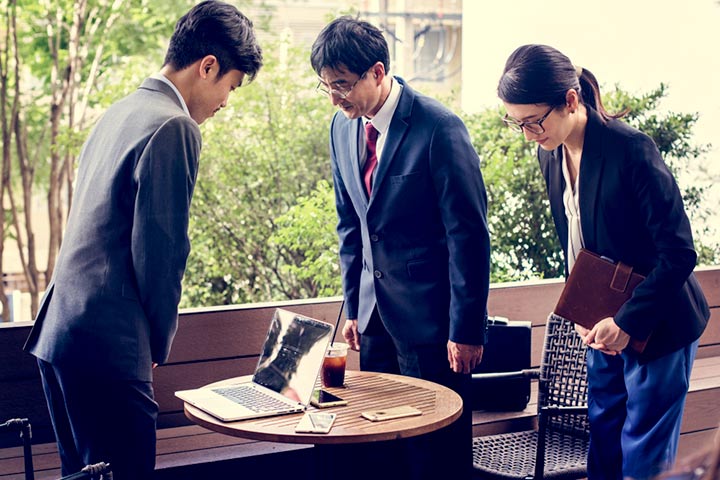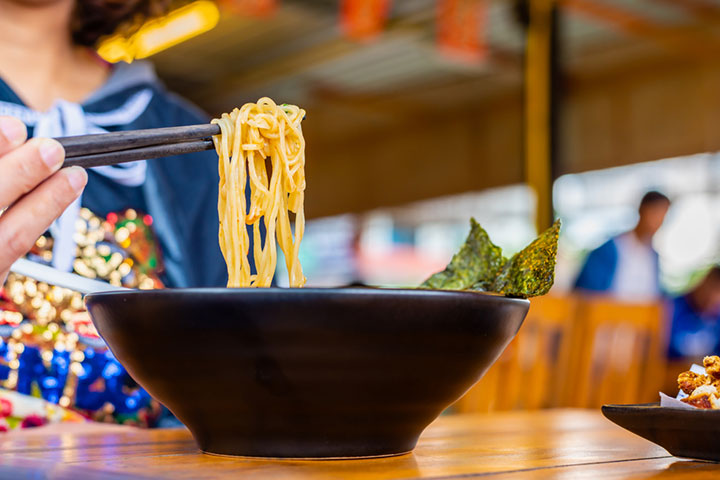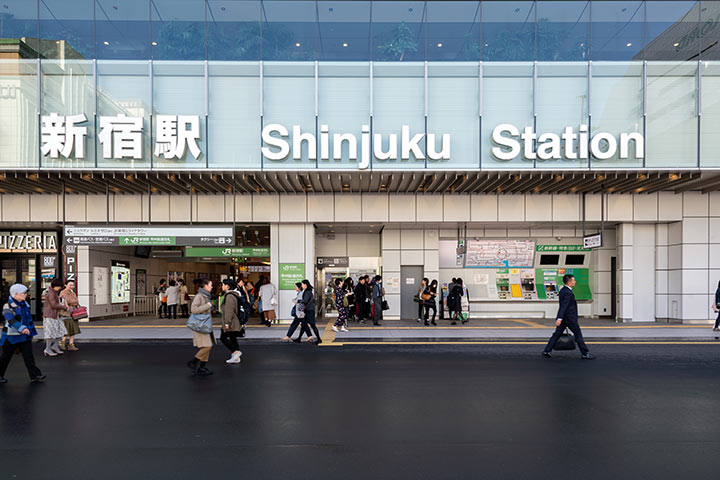Nicknamed ‘the land of the rising sun’, Japan is a small country in Asia with a crimson sun at the center of its flag. The civilizations and culture of the country have been among the oldest in the world. Japan has influenced the world and continues to do so even today, thanks to its strong heritage and value system.
Here, MomJunction presents 43 interesting facts about the island nation of Japan.
Name and Foundation
- The Japanese call their country ‘Nihon’ or ‘Nippon,’ which means the ‘Land of the Rising Sun.’
- Did you know that it was the Portuguese who introduced the rest of the world to the name Japan? The Portuguese traders who visited Southeast Asia heard from locals of a place called Japun, which is the name of Japan in the Malay language. The Malay name itself was derived from the Chinese name Zeppen.
- 16th century Europeans spelled Japan as Giapan, which eventually was modified to the spelling we know today.
- The first mention of the country in the English language comes from a book written in 1577, where the country is referred to as Giapan.
- Emperor Jimmu is considered to be the first ruler of Japan. He ascended the throne on 11th February 660 BC. This day is now celebrated as National Foundation Day and is a national holiday.
[ Read: New York Colony Facts ]
Geography
- Japan is made of more than 6,000 islands, which makes Japan an archipelago, a term used for a group of islands.
- Japan lies at the junction of four tectonic plates of the earth. It makes the country vulnerable to earthquakes as these tectonic plates shift regularly.
- The island country gets more than 1,000 earthquakes in a year although not all of them have devastating results. Mild tremors are felt almost every day.
- Japan is divided into eight regions for the political overview. There are a total of 47 prefectures (administrative divisions) in the entire country.
- Mount Fuji is the tallest mountain of Japan, with a height of 3,776.24 meters. It is a dormant volcano, but scientists say that there is still a risk of eruption, albeit quite low.
- There are 110 active volcanoes in Japan!
- The word Tsunami comes from Japanese, and it means ‘harbor wave.’ Being in an earthquake-prone zone, Japan has a long history of experiencing Tsunamis.
People and Culture
- Japanese bow instead of shaking hands. There are three unique ways of bowing to greet a person. They are called Eshaku, Keirei, and Saikeirei, each with a purpose and for relevant social occasions. Each bow is also unique by the angle you bend your torso!
- Shinto is the main religion of Japan followed by 80% of the population. It is a religion of intricate rituals with several variations to it. Other religions with significant followers in Japan are Buddhism and Christianity.
- Japan is known for Sumo wrestling, which is sport almost 1,500 years old. Sumo is the national sport of Japan.
- Baseball is the second most popular sport in Japan after Sumo and the most popular spectator sport. Baseball was introduced in Japan in the year 1872 by an American called Horace Wilson who worked as an English teacher in Tokyo.
- Did you know, four is an unlucky number in Japan? You may find buildings that may not have a labeled fourth floor or a row of numbered houses where numbers jump from three to five. This is because the pronunciation of number four is very similar to the pronunciation for the word ‘death.’
Japanese traders and businesspeople, who cannot go without number four, will use an alternative pronunciation for number four.
- Black cats are considered good luck charms in Japan. Having your path crossed by a black cat in Japan is a good omen.
- Ohaguro is a tradition of blackening the teeth, especially by the women. Teeth are painted using plant and iron-based inks. Blackening of teeth is gone out of fashion and has little occurrence in modern Japan.
- The Chrysanthemum flower is of significance for the Japanese. Flower shows are regularly organized to display the various varieties of the flower. A sketch of the flower is also the official seal of the emperor and the imperial family.
- Onsen is a Japanese hot spring bath where you can bath and relax in a large outdoor or indoor pool of water. Onsen could be a public one owned by a municipality and accessible to the public, or a privately owned by a hotel or resort.
- Did you know, you are not allowed to an Onsen with tattoos? Tattoos in Japan are seen as a symbol of the members of the Yakuza, which is the Japanese mafia. Onsen owners prohibit tattoos to refrain from mixing with the mafia. Several bath houses do allow tattoos if the person is a foreigner, a tourist for instance.
- The Tale of Genji is a 12th century novel from Japan written by the noblewoman Murasaki Shikibu. It is considered to be the world’s first ever novel.
- Haiku is a form of poetry from Japan that contains only three lines. It is considered the shortest form of poetry.
- The Japanese call the New Year eve Shogatsu. All Buddhist temples strike the temple bell 108 times at the stroke of the midnight. The ringing of the bell is believed to get rid of the 108 human sins stated in Buddhist beliefs.
- According to the Japanese, the call of a dog is not ‘bow-wow’ but ‘wan-wan.’
- Akita is a dog breed that originates from Japan. Hachiko was a famous Akita dog who waited nine years at a railway station for the return of his master who died suddenly at work. A statue of Hachiko stands today outside the railway station located in Tokyo.
[ Read: Facts About The Great Wall Of China ]
Food
- Noodles form a part of the staple diet of the Japanese. The Ramen noodles that we all know today originated in Japan. Momofuku Ando from Japan was the inventor of instant noodles and founder of the popular instant noodle brand Top Ramen.
- Japanese eat Pufferfish, which is called Fugu in Japanese. However, several organs of the fish have a toxin that can cause paralysis on consumption. Therefore, the fish is cut carefully only to get the non-poisonous parts. In Japan, you need to undergo three or more years of training to cut and cook Fugu. You need a license from the government to prepare a Fugu dish and even to sell the fish.
- It is okay to slurp noodles in Japan. It is even considered rude not to slurp noodles! Not slurping your noodles may be regarded as a sign that you do not like or relish the food served to you.
- The Japanese eat everything with chopsticks, or Waribashi in Japanese, made of wood. Chopsticks are disposed of after one use. The Japanese use about 25 billion pairs of chopsticks each year, which makes it 50 billion individual sticks.
- Japanese love their tea. The Japanese tea ceremony involves the elaborate preparation of matcha, which is finely powdered green tea. The Japanese even have green tea-flavored ice creams.
Urban and Modern Japan
- The country has the highest life expectancy in the world for both the genders. The average life expectancy for both men and women in Japan is 84 years.
- Japan has a low homicide rate, but the country has numerous cases of suicides. The suicide rate in Japan is several times more than the rate of homicides, which makes suicide a significant national problem than homicide.
- Japan has a higher population of elderly (those above 65 years) when compared to those less than 65 years of age. The elderly comprised 28.1% of the country’s population in 2018.
- Japan has the world’s shortest escalator that is even certified by the Guinness Book of World Records. The escalator is in a departmental store called More in the Japanese city of Kawasaki. The height of the escalator is only 83.4 centimeters (32.8 inches). It helps you cover a distance of 2.7 feet and only has five steps.
- The Japanese were the first to introduce a bullet train in the year 1964. The train was called the Shinkansen train, and it could reach a speed of 210 km/h (130 mph).
- The Tsukiji fish market in Tokyo was the world’s largest fish and seafood market. It sold about 660,000 tonnes of fish and seafood in a year. The market was established in the 17th century and relocated to a new location, with a new name, in the year 2018.
- The Shinjuku Station in Tokyo is the busiest railway station in the world. More than three million people use the station each day! The station has 53 platforms and 200 exits.
- In Japan, it is normal for employees to nap at work. Napping is seen as a sign of dedication and hard work; employee working to the point of exhaustion and hence taking a nap. The practice is called Inemuri, which means ‘present while sleeping.’
- The Japanese love phones that are indestructible by water. Almost 95% of phones sold in Japan are waterproof.
- There is a thriving animated industry in Japan that is called Anime. Several television shows and full-length films are produced each year as the anime fan base extends beyond Japan. Japan’s anime television shows account for 60% of world’s animated television shows.
- Did you know, Japanese films have significantly influenced world cinema? For example, the original Star Wars was inspired by the Japanese film The Hidden Fortress. The popular film monster Godzilla also has Japanese origins, and the Godzilla film franchise is considered to be the oldest in the world.
[ Read: Pennsylvania Colony Facts ]
Japan is a fascinating land full of interesting places and people. Modern Japan we know today is counted among the most developed nations in the world. Despite their progress, most Japanese people continue to follow the age-old customs that their ancestors have observed for centuries.
Have you been to Japan? Do share your experience in the comment section below.
Recommended Articles:
